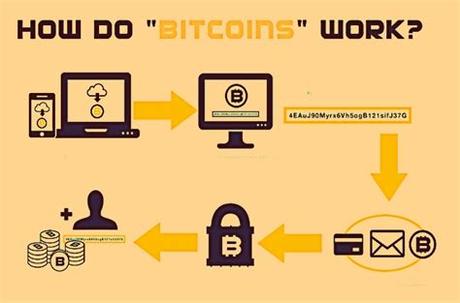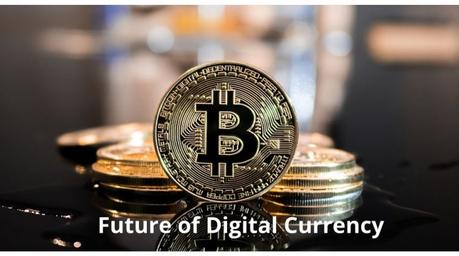What is a digital currency and how does it work? Digital currency, also known as cryptocurrency, is a type of currency that is entirely digital and uses encryption techniques to regulate its generation and verify transactions. Unlike traditional currencies, such as the US dollar or the Euro, digital currencies are not backed by any government or financial institution.
Cryptocurrencies were first introduced in 2009 with the creation of Bitcoin by an anonymous person or group known as Satoshi Nakamoto. Since then, thousands of other digital currencies have been created, each with its unique features and capabilities.
How Does Digital Currency Work?

Cryptocurrencies use a decentralized system, which means they are not controlled by a central authority or government. Instead, transactions are recorded on a public ledger called a blockchain, which is distributed across a network of computers. This ensures that transactions are transparent and can be verified by anyone on the network.
Although to use digital currencies, individuals must create a digital wallet, which is like a digital bank account. This wallet stores the individual’s private key, which is used to access and transfer their digital currency.
Read more: How to use AI for making NFTs in 2023
Advantages of Digital Currency
Security:
Rather digital currencies are highly secure as they use cryptography to secure transactions and protect the user’s identity. The decentralized nature of the system makes it difficult for hackers to breach the network.
Privacy:
Although dcurrencies offer a high level of privacy as users can transfer funds without revealing their identity.
Accessibility:
Although cryptocurrencies are accessible to anyone with an internet connection, regardless of their location or financial status.
Fast and Efficient:
Rather cryptocurrency enables fast and efficient transactions, with many transactions being processed instantly.
Lower Transaction Fees:
Cryptocurrencies have lower transaction fees than traditional financial institutions, which can save users a significant amount of money.
Disadvantages of Digital Currency:
Volatility:
The value of Cryptocurrencies can be highly volatile, with significant fluctuations occurring in short periods.
Lack of Regulation:
Digital currencies do not regulate by governments or financial institutions, which can make them vulnerable to fraud and abuse.
Acceptance:
D-currencies not widely accept as a means of payment, limiting their usefulness in everyday transactions.
Technical Complexity:
Digital currencies require a certain level of technical knowledge and understanding, making them difficult for some individuals to use.
Conclusion:
Digital currency is a rapidly evolving technology that has the potential to revolutionize the financial industry. While there are several advantages to using digital currency, there are also some significant challenges that must be addressed before it becomes a mainstream payment method. As technology continues to develop and mature, it will be interesting to see how it evolves and impacts the global economy.
Types of Digital Currency:
There are several types of digital currency available, each with its unique features and capabilities. The most popular types of digital currency include:
Bitcoin:
Bitcoin is the first and most well-known digital currency. It uses a decentralize system to enable peer-to-peer transactions and is not back by any government or financial institution.
Ethereum:
Ethereum is a decentralize platform that enables the creation of smart contracts and decentralize applications (dApps).
Ripple:
Ripple is a digital currency design for use in the banking industry. It enables fast and secure cross-border payments and back by several large financial institutions.
Litecoin:
Litecoin is a digital currency designe to be faster and more efficient than Bitcoin. It uses a different mining algorithm and has a larger total supply than Bitcoin.
How Digital Currency Generate:
cryptocurrency generates through a process call mining. Mining involves using powerful computers to solve complex mathematical equations that verify transactions and add new blocks to the blockchain. Miners reward newly generated digital currency for their efforts.
Some cryptocurrencies, like Bitcoin, have a fixed total supply, while others, like Ethereum, have a flexible total supply that increases over time.
Digital Currency Wallets:
cryptocurrency wallets are like digital bank accounts that store your cryptocurrency. They can use to send and receive cryptocurrency and typically accessed through a private key or password.
There are several types of cryptocurrency wallets, including:
Desktop Wallets:
Although desktop wallets software programs that install on your computer. They are more secure than online wallets but require more technical knowledge to use.
Online Wallets:
Furthermore, Online wallets web-base wallets that can access through any device with an internet connection. They are less secure than desktop wallets but are more convenient to use.
Hardware Wallets:
Although hardware wallets are physical devices that store your cryptocurrency. They are highly secure but can be expensive.
Mobile Wallets:
Mobile wallets are apps that can download onto your smartphone. They are convenient to use but are less secure than other types of wallets.
Read more: Data Visualization Best Practices (2023)
The Future of Cryptocurrency Currency:

Furthermore, the future of cryptocurrency currency is uncertain, but many experts believe that it has the potential to revolutionize the financial industry. As more businesses and individuals adopt d- currency, it is likely that it will become more widely accepted as a means of payment.
Further, there are also several challenges that must address, such as security and regulation. As technology continues to develop and evolve, it will be interesting to see how it impacts the global economy and the financial industry as a whole.
